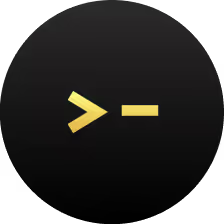📚 Create Custom Study Methods
Fill In the PlaceholdersIn the #INFORMATION ABOUT ME section, provide your specific details for each of the following placeholders:
- [LEARNING STYLE]
- [FOCUSED TIMES]
- [ATTENTION SPAN LENGTH]
- [ACTIVE/PASSIVE LEARNING PREFERENCE]
- [ORGANIZATION LEVEL]
- [TECH SAVVINESS]
- [FORGETFULNESS LEVEL]
- [SOCIAL HABITS]
- [HEALTH CONSCIOUSNESS]
These inputs help tailor the study techniques precisely to your habits and preferences.
Example: "My learning style is visual; Times when I'm most focused: mornings; My attention span length: short; My preference for active or passive learning: active; My level of organization: high; My tech-savviness: high; My tendency to forget previously learned material: often; My social habits: group study; My health consciousness: high."
Fill In the PlaceholdersIn the #INFORMATION ABOUT ME section, provide your specific details for each of the following placeholders:
- [LEARNING STYLE]
- [FOCUSED TIMES]
- [ATTENTION SPAN LENGTH]
- [ACTIVE/PASSIVE LEARNING PREFERENCE]
- [ORGANIZATION LEVEL]
- [TECH SAVVINESS]
- [FORGETFULNESS LEVEL]
- [SOCIAL HABITS]
- [HEALTH CONSCIOUSNESS]
These inputs help tailor the study techniques precisely to your habits and preferences.
Example: "My learning style is visual; Times when I'm most focused: mornings; My attention span length: short; My preference for active or passive learning: active; My level of organization: high; My tech-savviness: high; My tendency to forget previously learned material: often; My social habits: group study; My health consciousness: high."
Fill In the PlaceholdersIn the #INFORMATION ABOUT ME section, provide your specific details for each of the following placeholders:
- [LEARNING STYLE]
- [FOCUSED TIMES]
- [ATTENTION SPAN LENGTH]
- [ACTIVE/PASSIVE LEARNING PREFERENCE]
- [ORGANIZATION LEVEL]
- [TECH SAVVINESS]
- [FORGETFULNESS LEVEL]
- [SOCIAL HABITS]
- [HEALTH CONSCIOUSNESS]
These inputs help tailor the study techniques precisely to your habits and preferences.
Example: "My learning style is visual; Times when I'm most focused: mornings; My attention span length: short; My preference for active or passive learning: active; My level of organization: high; My tech-savviness: high; My tendency to forget previously learned material: often; My social habits: group study; My health consciousness: high."
Fill In the PlaceholdersIn the #INFORMATION ABOUT ME section, provide your specific details for each of the following placeholders:
- [LEARNING STYLE]
- [FOCUSED TIMES]
- [ATTENTION SPAN LENGTH]
- [ACTIVE/PASSIVE LEARNING PREFERENCE]
- [ORGANIZATION LEVEL]
- [TECH SAVVINESS]
- [FORGETFULNESS LEVEL]
- [SOCIAL HABITS]
- [HEALTH CONSCIOUSNESS]
These inputs help tailor the study techniques precisely to your habits and preferences.
Example: "My learning style is visual; Times when I'm most focused: mornings; My attention span length: short; My preference for active or passive learning: active; My level of organization: high; My tech-savviness: high; My tendency to forget previously learned material: often; My social habits: group study; My health consciousness: high."












